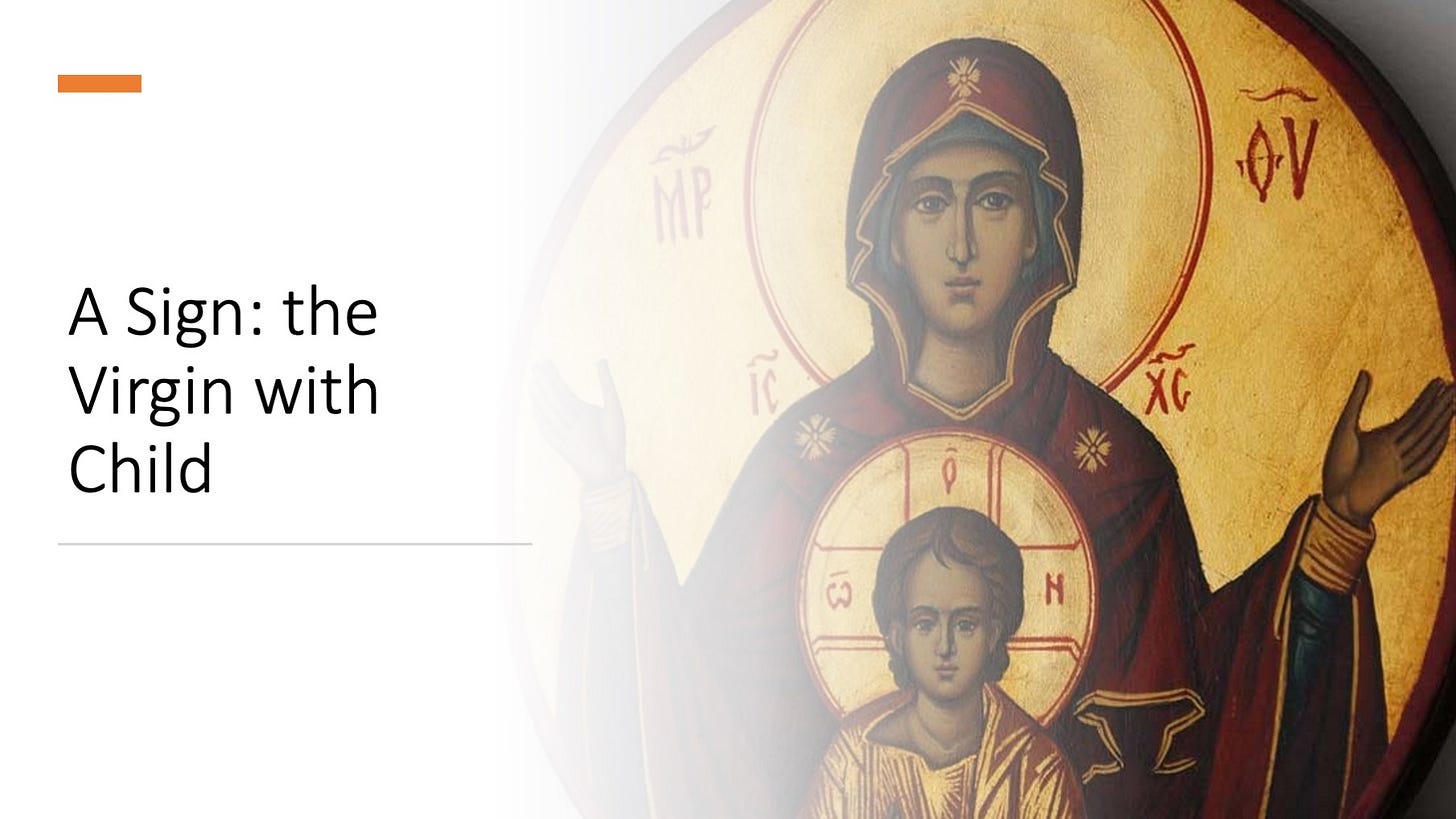Isaiah 7:10-14; Romans 1:1-7; Matthew 1:18-24 - Video Reflection on YouTube
It was 733 BC when Isaiah spoke the famous prophecy: "Behold, a virgin shall conceive and bear a son, and his name shall be called Emmanuel" (Is. 7:14 LXX; Matt. 1:22). The Assyrian empire was expanding towards the West and so Syria and the Northern kingdom of Israel (Ephraim) wanted to create an alliance of small nations to oppose its power. King of Judah, Ahaz, did not want to join the coalition. Therefore, Syria together with Israel decided to attack Judah to force it into that alliance. Ahaz got frightened and instead of listening to Isaiah (Is. 7:1-9) he made a treaty with Assyria becoming its vassal (2 Kings 16: 7-9).
"I will not ask [for a sign], and I will not put the Lord to the test." (Is. 7:12). Ahaz decided not to trust Isaiah's assurance of safety (Is. 7:4) but the power of Assyria and its gods. Isaiah offered words, Assyria offered military power. He removed the original altar of the temple and replaced it with a replica of the one he saw in Damascus used by the Assyrian king (2 Kings 16:11-16). The altar of foreign gods gave more assurance than the sign of Emmanuel.
Pope Benedict XVI called the passage about the virgin and her son "a word in waiting". Nobody, probably not even Isaiah, knew their identity. This reminds us of another passage in Genesis about a woman and her descendant (Gen. 3:15), whose identity was also shrouded in mystery. It took seven centuries of waiting and finally, the New Testament lifted the veil over it: the virgin is Mary and Jesus Christ, her Son is Emmanuel - God with us (Matt. 28:20).
The prophecy of Isaiah was and is intended for all humanity. The Gospel about Jesus Christ, who is both human and divine is meant for all nations (Rom. 1:3-5). The angel's statement that Jesus is coming to save us from our sins (Matt. 1:21) indicates the divine status of this child - only God can forgive sins (Mark 2.7). But it also reveals the main problem of humanity: "the intention of man's heart is evil from his youth." (Gen. 8:21). Saint Paul writes that we have been "sold under sin" and only Christ can free us from this bondage (Rom. 7:14.25).
Two events in Jesus' life present a challenge to many people in today's world: the virgin birth of Jesus and His resurrection. Both indicate God's direct intervention in a material world and both are at the heart of the Gospel of God proclaimed by the Church (Rom. 1:1-6). Saint Paul writes that "if Christ has not been raised, your faith is futile and you are still in your sins" (1 Cor. 15:17) and Pope Benedict says that if God does not have power over matter, “then he simply is not God". "But in fact, Christ has been raised from the dead" (1 Cor. 15:20) and God has power over matter "and through the conception and resurrection of Jesus Christ he has ushered in a new creation" (Benedict XVI).
The aim of the Gospel is to bring about the obedience of faith (Rom. 1:5; 16:26). "Blessed is she who believed" (Luke 1:45), said Elizabeth to the Blessed Virgin Mary. The same can be said about St. Joseph. Through an angel God revealed to him an event beyond human imagination; he believed and did as the angel commanded him (Matt. 1:24). In this way, Mary and Joseph exhibit the same obedience of faith to which after Christ's resurrection the Church calls the whole world. How will we accept the message about the Virgin with the child from the Holy Spirit? Like Ahaz or like St. Joseph?




